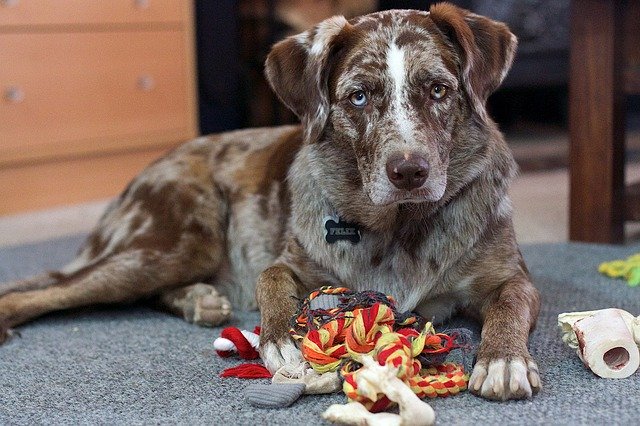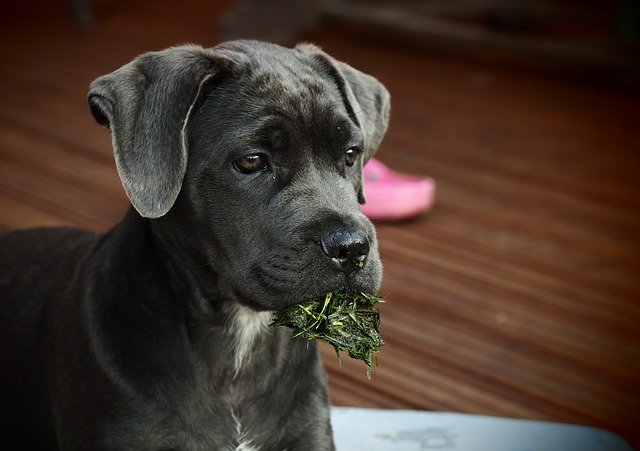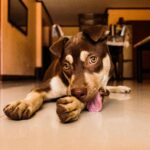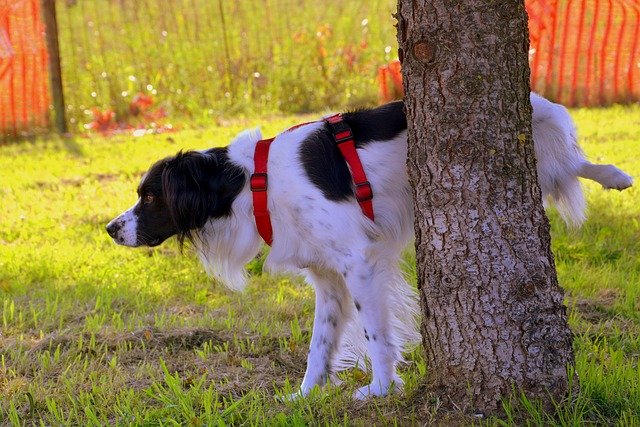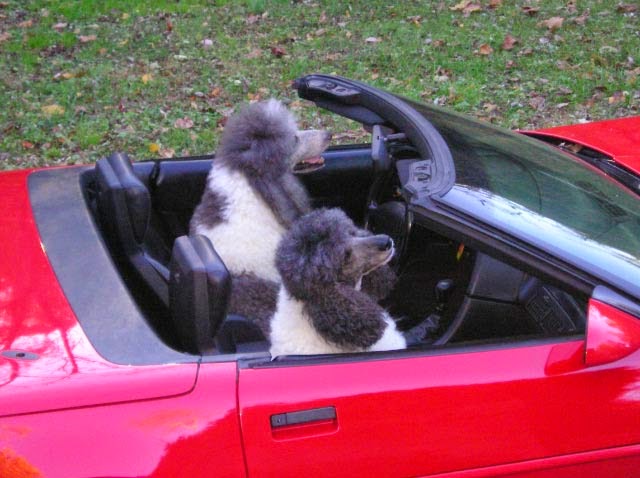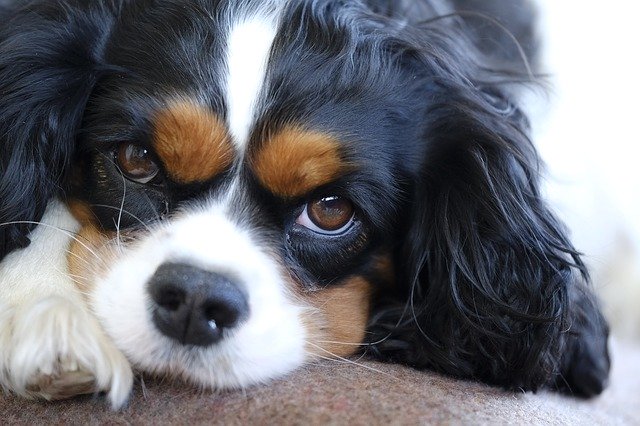Pica, pronounced Py ka, is defined as “an abnormal craving to eat items not normally eaten.” Merriam-Webster Dictionary. This is a condition seen in kids as well as dogs.
As our articles are predominately centered around dogs, in conjunction with their families, we will stick with PICA in dogs.
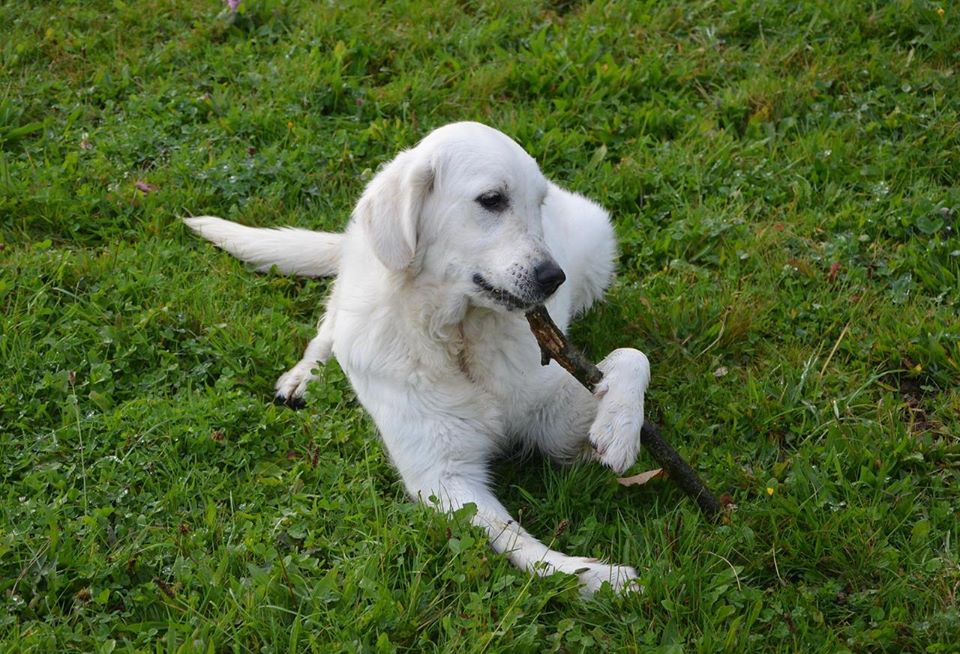
A dog suffering from PICA will just about eat anything he or she craves.
It’s easier to control what your dog eats inside the home than what might be picked up outside the home. Sometimes life with your dog, just like life with any living being, can be made easier with compromise. If your dog likes underwear, for instance, then a high hamper with a hard-to-pry-open lid will help to stop that behavior. Keeping items out of reach, be it golf balls, eyeglasses, paper towels, or even cat litter, might take some extra time, patience, and creative planning. But it can be accomplished. However, the craving to eat “inedible” items will still be present and your dog will hunt for other things to satisfy the need unless you take further action and visit your veterinarian for help.
Walking outside, if your dog suffers from PICA, opens the playing field for even more items, particularly if you use an extender leash. I’ve worked with dogs that eat discarded garbage in the street, paper towels, rabbit feces, small broken off tree branches, mulch, candy wrappers, and paper wrapping from fast food. Some will even eat the feces of other dogs as well as their own. Another reason to always pick-up after your dog.
Most of the above-mentioned items will cause medical harm to your dog’s digestive system. Some may be so serious that surgery becomes the only treatment.
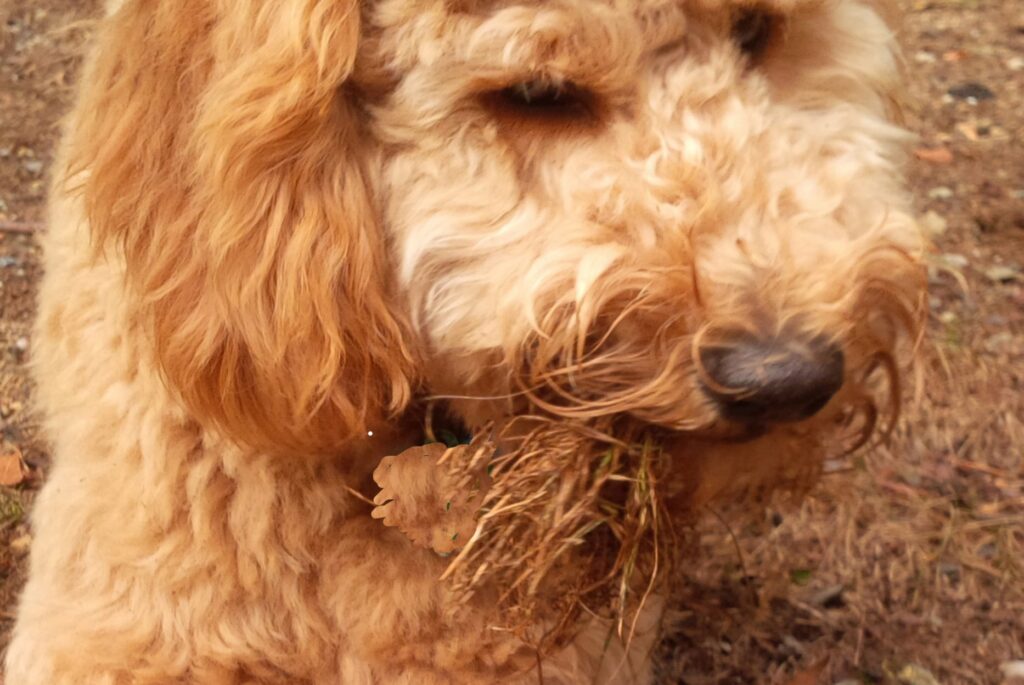
Any pet parent with a dog that exhibits such behavior, should seek the care and advice of a veterinarian.
What about dogs that eat their own feces? Well, there is a name for that too. It’s called coprophagy or coprophagia. There are many reasons for this unwanted behavior. Just to mention a few; 1. A puppy who learns this from their natural mother who eats feces from her puppies to keep the whelping bed clean. 2. A puppy from a pet shop or puppy mill, kept in kennel and eats, sleeps, drinks, plays, urinates and defecates in that kennel without much time outside of it. 3. Nutritional needs like deficiencies or hunger from under-feeding or parasites. 4. Boredom, stress, need of attention, or even getting rid of evidence to avoid punishment.
As always, we advise you to take your dog to the vet and have a full check-up, one that includes urine and blood analysis to determine the exact cause. A Board-Certified Veterinarian Behaviorist may also be necessary.

